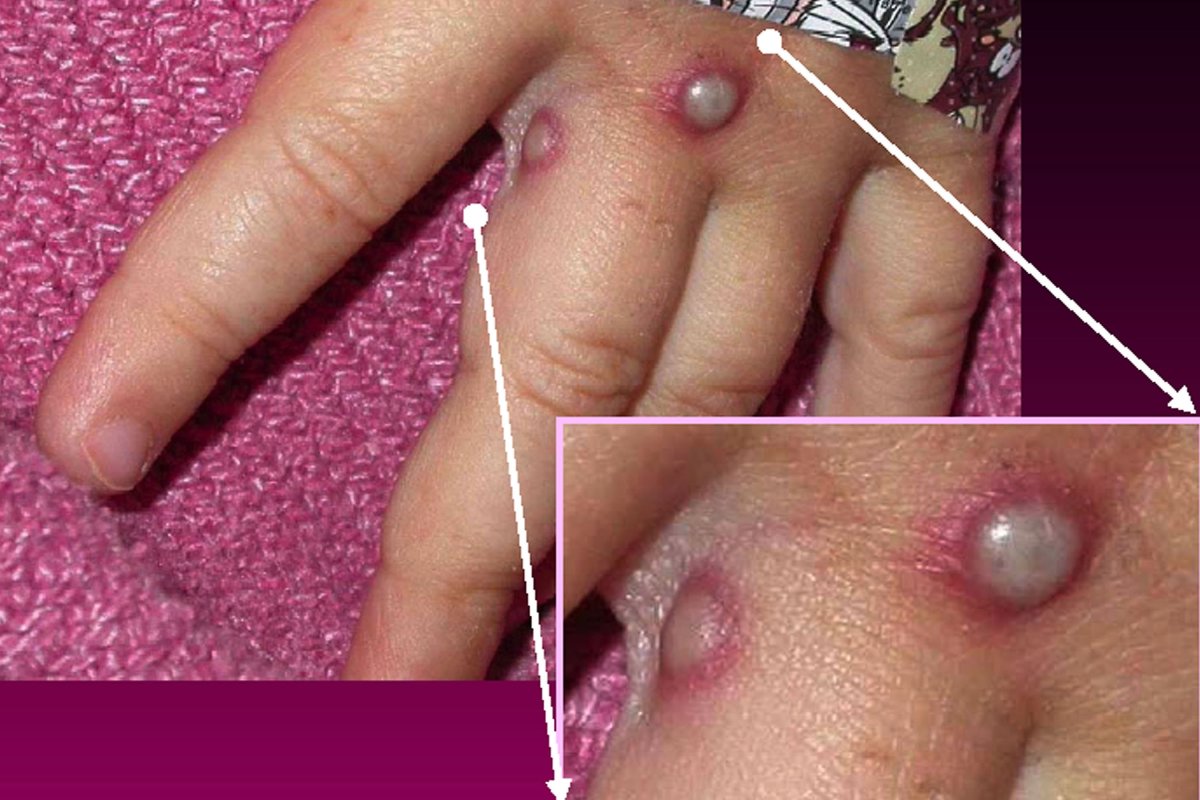The American embassy in Nigeria has been compelled to release a statement denying the U.S. is responsible for engineering a deadly monkeypox outbreak in the country.
Officials took the unusual step of addressing conspiracy theories head-on by issuing a 360-word rebuttal of the bizarre claims on Monday.
The document, which was published to the website of the U.S. Consulate General, insists allegations that secret American laboratories are deliberately spreading the infectious disease are "pure fabrication."
"Recent misleading posts on social media wrongly speculate on the origin of the current global outbreak of monkeypox disease, and supposedly call for WHO [World Health Organization] to investigate so-called 'U.S.-controlled laboratories' in Nigeria," the statement began.

"Such reports are pure fabrication. There is zero merit to any allegations regarding the use of U.S.-assisted Nigerian laboratories in the spread of monkeypox. Furthermore, there are no 'U.S.-controlled' laboratories in Nigeria.
"These falsehoods detract from the work that the United States, in close coordination with Nigerian and multilateral partners, accomplish together on public health, including in disease surveillance, diagnosis, prevention, and control."
The statement also noted: "Monkeypox is not a new disease, nor is it unique to Nigeria or this region, having first been diagnosed in 1970 in the DRC [Democratic Republic of the Congo]. As we work together to contain its spread, exported cases have been reported in the United Kingdom, United States, and other parts of the world."
Information specialist Temitayo Famutimi of the Public Affairs Section at the U.S. Consulate General concluded: "We will continue to collaborate with the Nigerian government on the ongoing global monkeypox and COVID-19 outbreaks and intensify support to Nigeria in other areas on which we have proudly partnered over the years, such as HIV epidemic control, tuberculosis eradication, malaria elimination, prevention of vaccine-preventable disease, and enhancing food and nutrition."
Newsweek has reached out to the U.S. Consulate General in Nigeria.
Conspiracy theories about the outbreak are not just festering in Nigeria. Recently, outlandish rumors spread on social media in the West claiming that Microsoft billionaire Bill Gates had somehow manufactured the disease. Experts have also branded dubious theories suggesting that monkeypox leaked from a lab in Ukraine or China as "nonsense."
The statement by the embassy in Nigeria came as the country recorded its first death from monkeypox this year. The Nigeria Centre for Disease Control added that 21 cases were reported across nine states and the Federal Capital Territory in the first five months of 2022.
The disease has been working its way across the globe, with a string of confirmed cases in Europe over the past month. In the U.S., a Massachusetts man became the first confirmed American case this year, when he was found to be infected earlier this month. So far, six states have reported cases.
Scientists at the Centers for Disease Control and Prevention are tracking multiple cases of monkeypox across the world, and urging American health professionals to be alert and aware of its symptoms.
Monkeypox is a rare viral infection, initially caught from wild animals found in forests across western and central Africa. Once infected, humans can spread the disease to others through close contact and droplet exposure through exhalation. Symptoms include fever, headache, muscle aches, and exhaustion but the disease is best-known for its unsightly rash. Blisters form across the body, with the pustules eventually turning to scabs. Most people are sick for two to four weeks and recover completely. There is no specific vaccine or treatment for monkeypox but smallpox vaccines have been used to treat some patients.
Uncommon Knowledge
Newsweek is committed to challenging conventional wisdom and finding connections in the search for common ground.
Newsweek is committed to challenging conventional wisdom and finding connections in the search for common ground.
About the writer
Get in touch with Chloe Mayer by emailing c.mayer@newsweek.com
To read how Newsweek uses AI as a newsroom tool, Click here.






